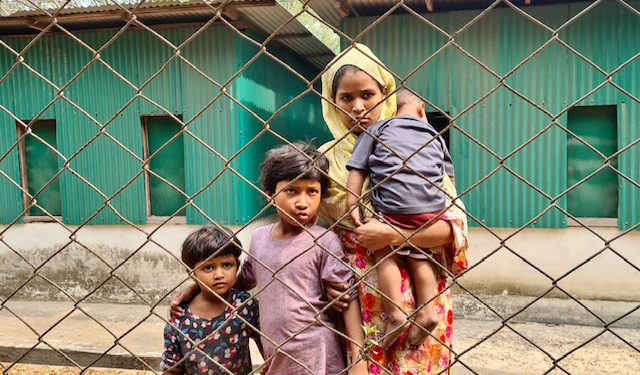DHAKA — Human Rights Watch (HRW) on Friday called on Bangladesh to suspend plans to send Rohingya refugees back to Myanmar, where their lives would be at risk.
Myanmar’s junta interviewed around 480 Rohingya in Cox’s Bazar recently for the repatriation project.
The New York-based rights group said the Rohingyas were deceived or coerced by Bangladeshi administrators into meeting the junta delegation for the pilot project to return about 1,000 refugees. Some were told about possible resettlement to a third country, the statement said.
“Voluntary, safe and dignified returns of Rohingya refugees to Myanmar are not possible while the military junta is carrying out massacres around the country and apartheid in Rakhine State,” said Meenakshi Ganguly of HRW. “Bangladesh authorities should stop deceiving these refugees to get them to engage with junta officials when it’s clear that Rohingya will only be able to return safely when rights-respecting rule is established.”
Mohammed Mizanur Rahman, Bangladesh’s refugee relief and repatriation commissioner, was unavailable for comment. But an anonymous government source dismissed the allegations.
“It was a voluntary option for the Rohingya to attend the interview and those who wanted to be interviewed met the Myanmar officials…there was no use of force,” the source said.
On March 22, officials from Myanmar junta’s immigration and population ministries left Bangladesh after interviewing around 480 Rohingya in Cox’s Bazar.
The 17-member delegation, led by Aung Myo, the social welfare minister for Rakhine State, started interviewing Rohingyas on March 15.
Aung Myo said the delegation selecting for a “family-based repatriation” project.
The regime originally cleared 711 Rohingyas out of 1,140 recommended by Bangladesh and visited Cox’s Bazar to interview the 429 rejected.
Bangladesh said the initial number was 429 but many families added members through marriage.
HRW stated that conditions in Rakhine State are not “conducive” to voluntary, safe or dignified returns. In 2017 more than 730,000 Rohingya fled Myanmar’s military crimes against humanity and acts of genocide.
“The prospect of durable returns has grown ever more distant since the February 2021 coup in Myanmar, carried out by the same generals who orchestrated the 2017 mass atrocities,” the statement read.
Bangladesh has not compelled these refugees to return and should continue that policy with the support of international donors, HRW said.
The junta’s repatriation program could reportedly start by mid-April.
HRW said it interviewed 15 Rohingya about their verification interviews.
They had not been informed about the junta meeting or that they were being considered for repatriation.
“I wasn’t informed that I would be interviewed by the Myanmar delegation,” a Rohingya man told HRW.
He said Bangladeshi officials told him to be available on March 15 to
“be interviewed for the opportunity to go abroad for resettlement. I never realized it was a Myanmar delegation I was going to meet or that it was about repatriation”.
The man said the official said the police could force him to attend the interview.
A Rohingya community leader said he was not informed about the reason for the interview and threatened with police intervention if he resisted.
Two previous repatriation attempts undertaken in November 2018 and August 2019 failed amid ongoing persecution and abuse in Myanmar.
Myanmar’s junta this month took diplomats from Bangladesh, India, China and five other countries to Rakhine State to promote Rohingya repatriations.
The United Nations agency for refugees, UNHCR, stated on March 19 that “conditions in Rakhine State are currently not conducive to the sustainable return of Rohingya refugees”, adding that no refugee should be forced to return.
















